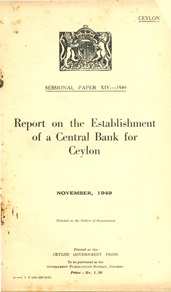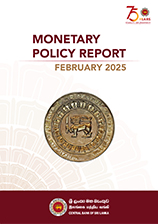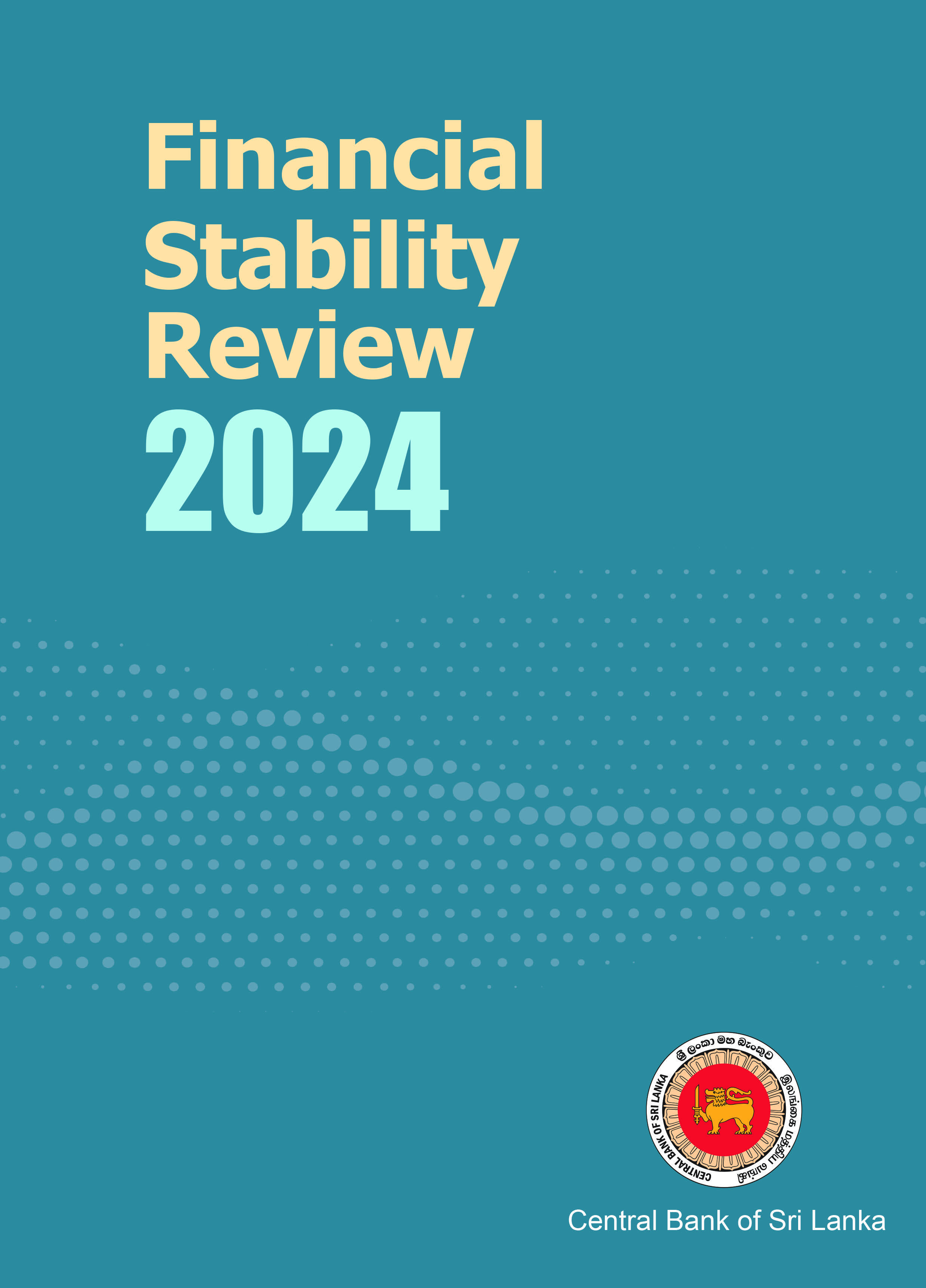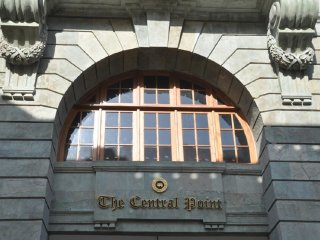The Monetary Board of the Central Bank of Sri Lanka, at its meeting held on 16 June 2020, decided to reduce the Statutory Reserve Ratio (SRR) applicable on all rupee deposit liabilities of licensed commercial banks (LCBs) by 200 basis points to 2.00 per cent, with effect from the reserve maintenance period that commenced on 16 June 2020. This reduction in the SRR injects around Rs. 115 billion of additional liquidity to the domestic money market, enabling the financial system to expedite credit flows to the economy, while reducing the cost of funds of LCBs.
-
The Central Bank of Sri Lanka Further Reduces the Statutory Reserve Ratio
-
Sri Lanka Purchasing Managers’ Index - May 2020
Manufacturing sector PMI recorded a noticeable bounce in May 2020 reaching to 49.3, which is an increase of 25.1 index points, from the all-time low of 24.2 recorded in April 2020. The gradual easing of restrictions for mobility has contributed to the resumption of economic activities in the manufacturing sector.
-
Statement by Deshamanya Professor W.D. Lakshman Governor of the Central Bank of Sri Lanka
There has been speculation by various groups and individuals that Sri Lanka’s financial system and financial institutions are in a weak position and that the general public is at risk of losing their deposits made at those institutions.
As the regulator of both banking and non-bank financial institutions that accept public deposits in the country, the Central Bank of Sri Lanka wishes to assure the general public that it will continue to take all possible measures to ensure the safety of public deposits. Hence this statement to educate the general public on the true state of affairs about financial institutions and their stability.
-
Compensation Payments to the Depositors of The Finance Company PLC under Sri Lanka Deposit Insurance and Liquidity Support Scheme
The license issued to The Finance Company PLC (TFC) to carry on finance business has been cancelled with effect from 22.05.2020 in terms of the provisions of the Finance Business Act No. 42 of 2011.
The Central Bank of Sri Lanka (CBSL) has taken steps to pay compensations up to Rs.600,000 to all insured depositors as per the Regulations of Sri Lanka Deposit Insurance and Liquidity Support Scheme. The balance amount if any, will be settled after liquidation of properties belong to TFC. The compensation payments will be made through the People’s Bank as the agent bank appointed by CBSL for this purpose. The first phase of the compensation payment for the individual depositors having a single deposit, will be commenced on 7th June 2020 at People’s Bank branch locations where TFC branches were previously operated.
-
External Sector Performance - March 2020
The COVID-19 pandemic and the imposition of a partial lockdown in Sri Lanka in the second half of March 2020 affected external sector performance in March 2020. Breakdown in supply and demand chains along with the interruption of domestic production processes resulted in a notable decline in merchandise exports as well as merchandise imports. However, with a greater decline in the expenditure on imports compared to the decline in earnings from exports, the trade deficit narrowed over the same period in 2019. The tourism industry was severely affected with the imposition of travel restrictions globally and the closure of the Bandaranaike International Airport (BIA). Workers’ remittances declined notably in March 2020, with the return of migrant workers from affected countries as well as the reported job terminations of some workers abroad.
-
Suspension of Business of NatWealth Securities Limited
The Monetary Board of the Central Bank of Sri Lanka (CBSL) at its meeting held on 28.05.2020, having considered the continuous failure to comply with the Directions applicable to NatWealth Securities Limited (NWSL) as a Primary Dealer, acting in terms of the Regulations made under the Registered Stocks and Securities Ordinance and the Local Treasury Bills Ordinance, has decided to suspend NWSL from carrying on the business and activities of a Primary Dealer for a period of six months with effect from 01.06.2020.
-
CCPI based Inflation declined further in May 2020
Headline inflation as measured by the year-on-year (Y-o-Y) change in the Colombo Consumer Price Index (CCPI, 2013=100) declined to 4.0 per cent in May 2020 from 5.2 per cent in April 2020. This was solely driven by the statistical effect of the high base prevailed in May 2019. Food inflation (Y-o-Y) declined to 9.9 per cent in May 2020 from 13.2 per cent in April 2020. Further, Non-food inflation (Y-o-Y) also declined to 1.6 per cent in May 2020 from 2.1 per cent in April 2020.
-
Cancellation of the licence of 'The Finance Company PLC'
The Finance Company PLC (TFC), is a Finance Company, carried its finance business activities under the Finance Business Act No. 42 of 2011 (FBA) and was severely impacted by the failure of a number of financial institutions within the Ceylinco Group in 2008. Since then, the financial status of the company deteriorated gradually, leading to a severe liquidity crisis.
-
NCPI based Inflation decreased further in April 2020
Headline inflation as measured by the yearon- year (Y-o-Y) change in the National Consumer Price Index (NCPI, 2013=100) decreased to 5.9 per cent in April 2020 from 7.0 per cent in March 2020. This was driven by the monthly decline of prices of the items in the Food category and the statistical effect of the high base prevailed in April 2019. Accordingly, Food inflation (Y-o-Y) declined to 12.2 per cent in April 2020 from 14.1 per cent in March 2020. Meanwhile, Non-food inflation (Y-o-Y) also declined to 1.1 per cent in April 2020 from 1.8 per cent in March 2020.
-
Sri Lanka Reiterates its Commitment to Meeting all its Financial Obligations
The Government of Sri Lanka finds inferences in recent media reports questioning its ability to honour its debt service obligations. The Government notes with dismay such inferences made by certain media to imply that Sri Lanka is at risk of falling into a sovereign debt crisis by comparing Sri Lanka with other sovereigns which are said to be in similar situations. The Government wishes to categorically deny all such baseless claims, and would like to reiterate to all stakeholders that Sri Lanka will duly honour all its debt service obligations in the period ahead.










